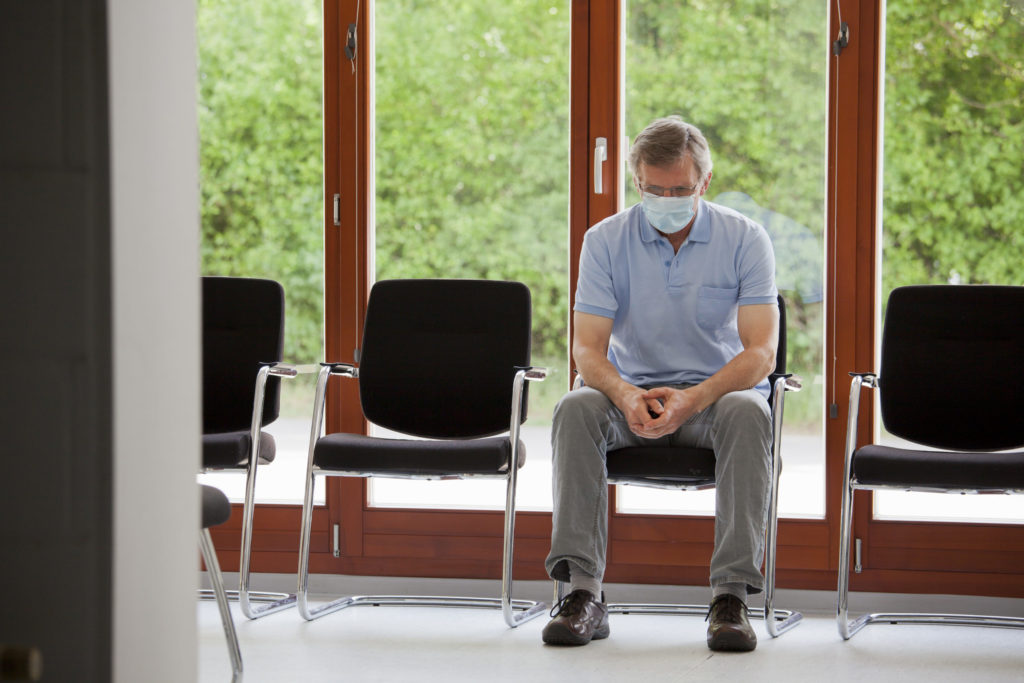
The WHO surveyed 155 countries. Although low-income countries were most affected, COVID-19’s negative impact on non-communicable disease treatment was found across the nations surveyed. The findings paint a grim picture for those seeking care for non-communicable diseases during the global pandemic:
Rehabilitative services were the single most disrupted treatment, with nearly two-thirds of countries reporting issues. WHO suggests that rehabilitation continues to be wrongly perceived as a non-essential health service when, for many patients, it is indeed essential. The shortfall in care adversely affects the millions of patients with rheumatic and musculoskeletal conditions, among others.
Because people with a non-communicable disease also may be at higher risk for COVID-19 complications, the lack of treatment access has a compounded effect during the pandemic. The WHO’s Dr. Bente Mikkelsen explained that “not only are people with [non-communicable diseases] more vulnerable to becoming seriously ill with the virus, but many are unable to access the treatment they need to manage their illnesses.”
Disruptions stem from several factors:
Many countries were lacking even before the pandemic. WHO reports chronic underinvestment in the prevention, early diagnosis, screening, treatment and rehabilitation for non-communicable diseases over the past decade. For example, fewer than half of countries had guidelines for the four major non-communicable diseases. And while considerable progress occurred between 2000 and 2010 in the prevention and treatment of non-communicable diseases, the momentum has since slowed.
A bright spot in the survey was the alternative treatments health professionals found to be effective during the pandemic. Of the countries who reported disruptions in health services, 58% said they are now using telemedicine. Triaging patients to determine priority was also reported in two-thirds of the countries surveyed.
Moving forward, finding still more innovative ways to protect access for people with non-communicable diseases should be top of mind for policymakers.
Recent Posts

Global Alliance for Patient Access
© 2024 GAfPA. All Rights Reserved
| Cookie | Duration | Description |
|---|---|---|
| cookielawinfo-checkbox-analytics | 11 months | This cookie is set by GDPR Cookie Consent plugin. The cookie is used to store the user consent for the cookies in the category "Analytics". |
| cookielawinfo-checkbox-functional | 11 months | The cookie is set by GDPR cookie consent to record the user consent for the cookies in the category "Functional". |
| cookielawinfo-checkbox-necessary | 11 months | This cookie is set by GDPR Cookie Consent plugin. The cookies is used to store the user consent for the cookies in the category "Necessary". |
| cookielawinfo-checkbox-others | 11 months | This cookie is set by GDPR Cookie Consent plugin. The cookie is used to store the user consent for the cookies in the category "Other. |
| cookielawinfo-checkbox-performance | 11 months | This cookie is set by GDPR Cookie Consent plugin. The cookie is used to store the user consent for the cookies in the category "Performance". |
| viewed_cookie_policy | 11 months | The cookie is set by the GDPR Cookie Consent plugin and is used to store whether or not user has consented to the use of cookies. It does not store any personal data. |